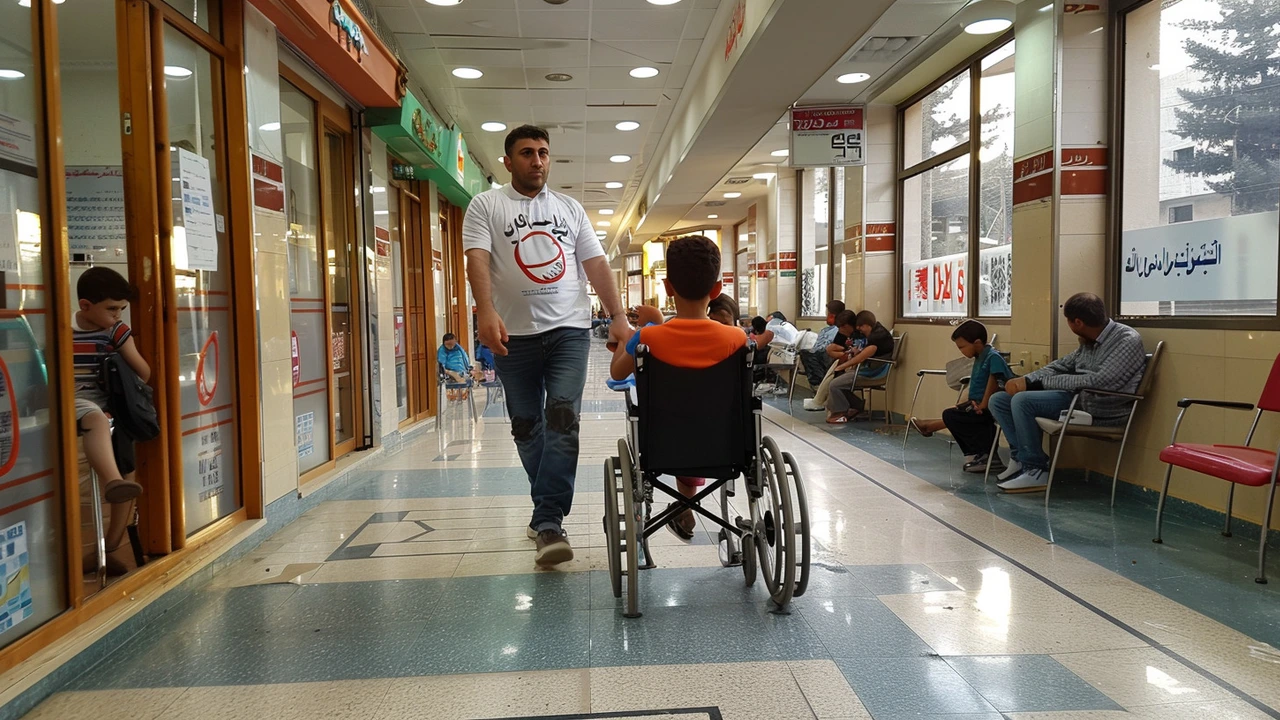Unrelenting Bombardment and Its Impact on Gaza's Health System
The Gaza Strip, a densely populated area already struggling with limited resources, is facing an immense humanitarian crisis as Israeli bombing intensifies. The situation has reached a critical point, particularly in the Tal as-Sultan region of Rafah, where the relentless bombardment has placed Gaza's fragile health system under unparalleled strain. This escalation in violence has targeted medical facilities, turning them from safe havens into dangerous zones. The health system, already on the verge of collapse, is now teetering under the weight of this intensified assault, bringing profound consequences for both patients and healthcare providers.
The Targeting of Hospitals in Rafah
In recent attacks, two hospitals in Rafah have borne the brunt of the increasing violence. The Indonesian Field Hospital, which has long been a crucial medical center for the region, sustained significant damage to its upper floors. This damage has trapped medical staff, patients, and entire Palestinian families who sought refuge within its walls, turning it into a precarious shelter amidst the chaos. Drained of vital resources and under constant threat, the hospital's ability to provide essential medical care has been severely compromised.
Earlier, the tragedy struck Rafah's Kuwaiti Speciality Hospital, a key facility that had been treating 249 wounded from previous Israeli attacks. Two dedicated medical staff members tragically lost their lives when they were targeted outside the hospital gates by Israeli forces. This tragic loss forced the hospital to cease operations entirely. Dr Suhaib al-Hams, the hospital's director, confirmed that the closure resulted directly from Israeli military actions. This abrupt shutdown deprived hundreds of critical medical services, exacerbating the already dire healthcare situation. Dr Mohammed Tahir, an orthopedic surgeon, expressed grave concerns about this development, emphasizing the crucial need for uninterrupted medical services in such extreme times.
Obstructed Lifelines and Fuel Blockades
The crisis isn't confined to Rafah. Central Gaza's Al-Aqsa Martyrs Hospital is also on the brink of a shutdown. Israeli forces have blocked its fuel supply, paralyzing its operations. Fuel is a lifeline for hospitals, powering generators that keep essential medical equipment functioning, from ventilators in the ICU to lights in operating rooms. Without it, the hospital's ability to save lives is drastically impaired. This blockade represents a life-threatening constraint on Gaza's already overstressed health infrastructure.
Since the conflict's inception on October 7, Israeli forces have taken severe actions against Gaza's medical facilities. Data reveals that 24 hospitals have been either damaged, destroyed, or occupied, out of an original 36. This leaves only six partially functioning hospitals for Gaza's entire population, creating a catastrophic shortfall in healthcare capacity.
Humanitarian Crisis and Lifesaving Supplies
One of the most troubling aspects of the ongoing conflict is Israel's obstruction of lifesaving supplies. Medical facilities across the Gaza Strip are in desperate need of supplies ranging from basic medicines to surgical equipment. The blockade on these supplies is having devastating consequences on patients who require immediate medical intervention. Without a steady stream of essential supplies, hospitals cannot perform surgeries, treat chronic illnesses, or even provide basic care for the wounded. The gap between the need for medical care and the ability to deliver it is widening by the hour, creating a humanitarian disaster.
Personal Stories and Human Toll
Beyond the statistics and strategic analyses, the conflict's human toll is immense and heartrending. Consider the plight of families who have lost their homes and now seek refuge in hospitals, only to find themselves in harm's way despite their efforts to find safety. Children, the elderly, and the infirm are especially vulnerable. The trauma of continuous bombardment, coupled with the lack of immediate medical care, is carving deep psychological scars that will last long after the physical wounds have healed.
Medical professionals, too, are enduring enormous hardships. Operating under constant threat and with dwindling resources, they continue to provide care, often at the risk of their own lives. Their stories of bravery and resilience are a testament to the unyielding spirit of those committed to saving lives despite the odds. Yet, they are also a sobering reminder of the urgent need for international intervention and support.
International Response and Future Outlook
The international community has expressed concern over the deteriorating situation in Gaza, calling for an immediate ceasefire and the free flow of humanitarian aid. However, as diplomatic efforts lag and negotiations remain at a standstill, the urgency on the ground grows ever more acute. The international humanitarian organizations are advocating for the protection of medical facilities and staff as per international humanitarian law, stressing that hospitals should be sanctuaries, not targets.
The future of Gaza's health system hangs in the balance. The current escalation needs to see an immediate de-escalation for any meaningful relief to take place. The healing and rebuilding process will require concerted efforts from all stakeholders, including robust international support. Medical supplies, reconstruction of destroyed facilities, and psychological support for the affected populations will be foundational to any recovery efforts.
As the conflict continues, the world watches with bated breath, hoping for a resolution that will bring an end to the suffering. The people of Gaza are living through one of the most challenging periods, and their need for compassionate, sustained support is greater than ever.
